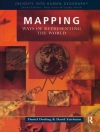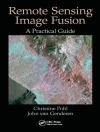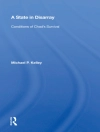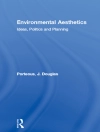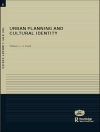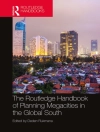Space-time analysis is a rapidly growing research frontier in geography, GIS, and GIScience. Advances in integrated GPS/GIS technologies, the availability of large datasets (over time and space), and increased capacity to manage, integrate, model and visualize complex data in (near) real time, offer the GIS and geography communities extraordinary opportunities to begin to integrate sophisticated space-time analysis and models in the study of complex environmental and social systems, from climate change to infectious disease transmission.
This volume specifically focuses on research frontiers, comparative research, and research and application interactions in this field in the US and China, arguably the two most dynamic loci for this work today. The contributions to this book, by top researchers in China and the US, productively highlight the differences and similarities in approaches and directions for space-time analysis in the two countries. In light of the recent rapid progress in GIScience research on space-time integration in both countries, the book’s focus on research frontiers in these two countries will attract great interest in both countries and in other parts of the world as well as among related disciplines. In addition, the book also explores the impact of collaborative research and publications underway in this area between the US and China and will provide an overview of these collaborative efforts and programs.
This book will not only be of interest to university-based GIS researchers and students, but also to those interested in this new area of research and applications like researchers and developers in business, internet mapping and GIS and location based services (LBS).
Tabela de Conteúdo
Chapter 1: Introduction; Mei-Po Kwan, Douglas Richardson, Donggen Wang and Chenghu Zhou.- Chapter 2: Perspectives on Space and Time in US and Chinese Science; Michael F. Goodchild and Peng Gong.- Chapter 3: Space-Time Behavior Research and Application in China; Yanwei Chai, Zhilin Liu, Yan Zhang and Tana.- Chapter 4: Beyond Space (As We Knew It): Toward Temporally Integrated Geographies of Segregation, Health, and Accessibility; Mei-Po Kwan.- Chapter 5: The Influence of Built Environment on Walking Behavior: Measurement Issues, Theoretical Considerations, Modeling Methodologies and Chinese Empirical Studies; Hui Lin, Guibo Sun and Rongrong Li.- Chapter 6: Spatiotemporal Networks: Modeling, Storing, and Querying Temporally-Detailed Roadmaps; Michael R. Evans, Kwang Soo Yang, Viswanath Gunturi, Betsy George and Shashi Shekhar.- Chapter 7: Spatiotemporal Critical Opportunity and Link Identification for Joint Participation Scheduling; Zhixiang Fang, Shih-Lung Shaw, Wei Tu and Qingquan Li.- Chapter 8: Robustness Analysis of City Road Network at Different Granularities; Yingying Duan, Feng Lu.- Chapter 9: Spatial Analysis of Census Mail Response Rates: 1990-2010; Daniel A. Griffith and Yongwan Chun.- Chapter 10: Creating Spatiotemporal Semantic Maps from Web Text Documents; Wei Wang and Kathleen Stewart.- Chapter 11: The HGIS Experience of Drawing Sub-county Unit Boundaries in the Jiangnan Region of Late Imperial China; Tam Ka-chai and So Kee-long Billy.- Chapter 12: Beyond the Boundary: New Insights from Inside the Space-time Prism; Ying Song and Harvey J. Miller.- Chapter 13: Detecting Activity Types and Trip Purposes from Passive GPS Data: A Data Mining Approach; Donggen Wang and Bingxia Sun.- Chapter 14: Quantitative Analysis of Climate Change and Human Crises in History; Harry F. Lee and David D. Zhang.- Chapter 15: Analyzing the Patterns of Space-Time Distances for Tracking the Diffusion of an Epidemic; Tzai-Hung Wenand Yu-Shiuan Tsai.- Chapter 16: Assessing Dynamic Exposure to Air Pollution; Mei-Po Kwan, Desheng Liu and Jaclyn Vogliano.- Chapter 17: Spatiotemporal Change Pattern Mining: A Multi-disciplinary Perspective; Xun Zhou, Shashi Shekhar and Pradeep Mohan.- Chapter 18: Contemporary Computing Technologies for Processing Big Spatiotemporal Data; Chaowei Yang, Min Sun, Kai Liu, Qunying Huang, Zhenlong Li, Zhipeng Gui, Yunfeng Jiang, Jizhe Xia, Manzhu Yu, Chen Xu, Peter Lostritto and Nanying Zhou.- Chapter 19: Short-Interval Monitoring of Land Use and Land Cover Change Using a Time Series of RADARSAT-2 Polarimetric SAR Images; Anthony Gar-On Yeh and Zhixin Qi.- Chapter 20: Space-Time Analytics of Tracks for the Understanding of Patterns of Life; May Yuan and Atsushi Nara.- Chapter 21: Real-time Space-time Integration in GIScience and Geography; Douglas Richardson.
Sobre o autor
Mei-Po Kwan is a Professor of Geography and Geographic Information Science and an Affiliated Faculty of the Cyber GIS Center for Advanced Digital and Spatial Studies at the University of Illinois at Urbana-Champaign. She received the 2005 UCGIS Research Award for outstanding contributions to GIScience from the University Consortium for Geographic Information Science (UCGIS). In 2011, she received a Distinguished Scholarship Honors award from the Association of American Geographers (AAG). Kwan is currently Editor of the Annals of the Association of American Geographers and the book series entitled “SAGE Advances in Geographic Information Science and Technology.” She is Associate Editor of Travel Behaviour and Society, and an editorial board member of the Journal of Transport Geography, Applied Geography, and Geographical Analysis. She has made outstanding contributions to geographic information science and geography, especially in developing geocomputational algorithms for implementing space-time accessibility measures that are sensitive to individual differences, 3D interactive geovisualization, network-based 3D topological data models, GIS-based intelligent emergency response systems (GIERS), the protection of geoprivacy through geographical masks, and computational-process modeling of activity-travel decisions.
Douglas Richardson is the Executive Director of the Association of American Geographers (AAG). During the past ten years, he led a highly successful organizational renewal of the AAG and has built strong academic, research, publishing, and financial foundations for the organization’s future. Prior to joining the AAG, Richardson founded and for 18 years was the president of Geo Research, Inc., a private-sector scientific research company specializing in geographic research andtechnology, including geographic information science and systems (GIS), spatial modeling, and Global Positioning Systems (GPS). Geo Research developed and patented the world’s first real-time interactive GPS/GIS technologies, leading to transformative changes in the ways in which geographic information is now collected, mapped, integrated, and used within science, as well as in society more broadly. He also has been closely engaged with both technical and social issues related to geospatial data confidentiality and privacy for more than 20 years. Richardson holds a Bachelor’s degree from the University of Michigan and a Ph D in Geography from Michigan State University. His current research interests focus space-time integration in GIS and GIScience, and on geography’s evolution as an international discipline and its future trajectories in the university and in society.
Donggen Wang is Professor of Department of Geography, Director of Center for China Urban and Regional Studies at Hong Kong Baptist University. He has been conducting research in the fields of time geography, activity-travel behavior analysis, built environment and activity-travel behavior; GIS, GPS and Transportation; etc. He was the Chairman of Hong Kong Geographical Association (2009-2013). He is currently the Editor-in-Chief of Asian Geographer; Editor-in-Chief of Travel Behavior and Society, and serves on the editorial board of several international journals.
Chenghu Zhou is an academician of the Chinese Academy of Sciences, director of LREIS, deputy director of the Branch Association of Environmental Remote Sensing of the Geographic Association of China, head of the expert group of earth observation and navigation technology of State High-tech Research and Development Program (‘863’ Program), vice president of Geo-information Science Committee, IGU, an editorial board member of International Journal of Geographical Information Science, and chief editor of Progress in Geography. His research interests include fundamental theory or application of remote sensing and geographical information system. Professor Zhou has developed the technology and methodology of natural disaster monitoring and evaluation using remote sensing, advanced the theory and methodology of intelligent RS image analysis and discrete geo-system simulation, expanded the research on marine fishery GIS and completed geomorphologic map of China at a scale of 1:1, 000, 000, which fill in the gap in China. He has published over 240 academic papers and 17 scientific books/atlases. He has also won 16 awards of national, provincial and ministerial levels, including 5 awards for National Scientific and Technological Progress.


